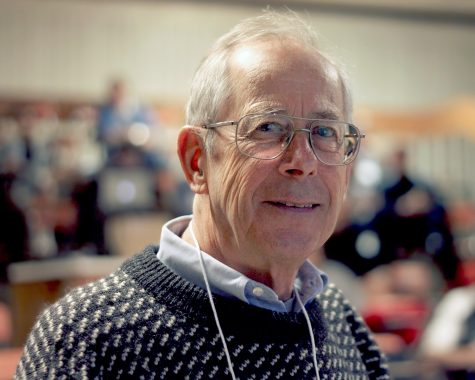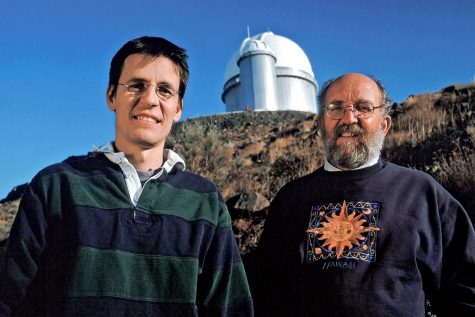2019 Physics Nobel Prize – Who Won it and What For?

Authors: Juan Diego Soler, David Levy, Jean Gagnon

Authors: L. Weinstein/Ciel et Espace Photos, David Levy
On the 8th of October, the Nobel Prize in Physics was announced by Göran K Hansson, Secretary-General of the Royal Swedish Academy of Sciences. This year, it is being awarded “for contributions to our understanding of the evolution of the universe and Earth’s place in the cosmos”, with half the prize going to James Peebles “for theoretical discoveries in physical cosmology” and the other half going to both Micheal Mayor and Didier Queloz “for the discovery of an exoplanet orbiting a solar-type star”.
James Peebles was born in Winnipeg Canada in 1936 and got a Ph.D. at Princeton University in 1963. The majority of his work since then has been in the field of physical cosmology, which is the branch of cosmology that focuses on the study of the largest-scale structures and dynamics of the universe. It also studies the fundamental questions of the universe, such as its origin, structure, evolution and eventual fate. Even though there was very little interest in this field of study, Peebles pushed through and remained committed to the field.
Peebles contributed the most to the development of the Big Band Model. Along with multiple other scientists, he was able to predict and discover traces of cosmic background radiation, which is radiation that dates back as far back as the Big Bang. He also made a major contribution to the study of dark matter (a mysterious form of matter which is hypothesized to account for approximately 85% of the universe’s matter) and dark energy (a mysterious form of energy which scientists believe is what is expanding the universe). Peebles was also a pioneer in the study of cosmic structure formation -the study of the formation of galaxies and galaxy clusters- long before it was even considered a branch of physics. The accumulation of all these contributions to the field of physical cosmology and the origins and development of the universe is the leading reason behind why he was awarded half of the Nobel Prize.
Michael Mayor was born in 1942 in Lussane Switzerland and completed his Ph.D. in 1972 at the University of Geneva, while Didier Queloz was born in 1966 in Switzerland and completed his Ph.D. in 1995 at the University of Geneva. In 1995 the pair were the first to discover an exoplanet – a planet outside our solar system- that revolves around a main-sequence star- a star similar to our Sun. The exoplanet was discovered at the Haute-Provence Observatory in southern France, using custom-made instruments and was officially named 51-Pegasus b -named after the star it revolves on Pegasis b- and is a gaseous ball which is comparable to the planet Jupiter. Their discovery started a revolution in the field of astronomy, with more than 4,000 exoplanets being discovered since, each with their own unique qualities.
The winners of this year’s physics Nobel Prize have made major contributions to develop our idea of the cosmos and their discoveries will forever change our conception of the world. 9 million Swedish krona (845,000 Euros), with half being split to James Peebles and the other half being split jointly to Michel Mayor and Didier Queloz.








